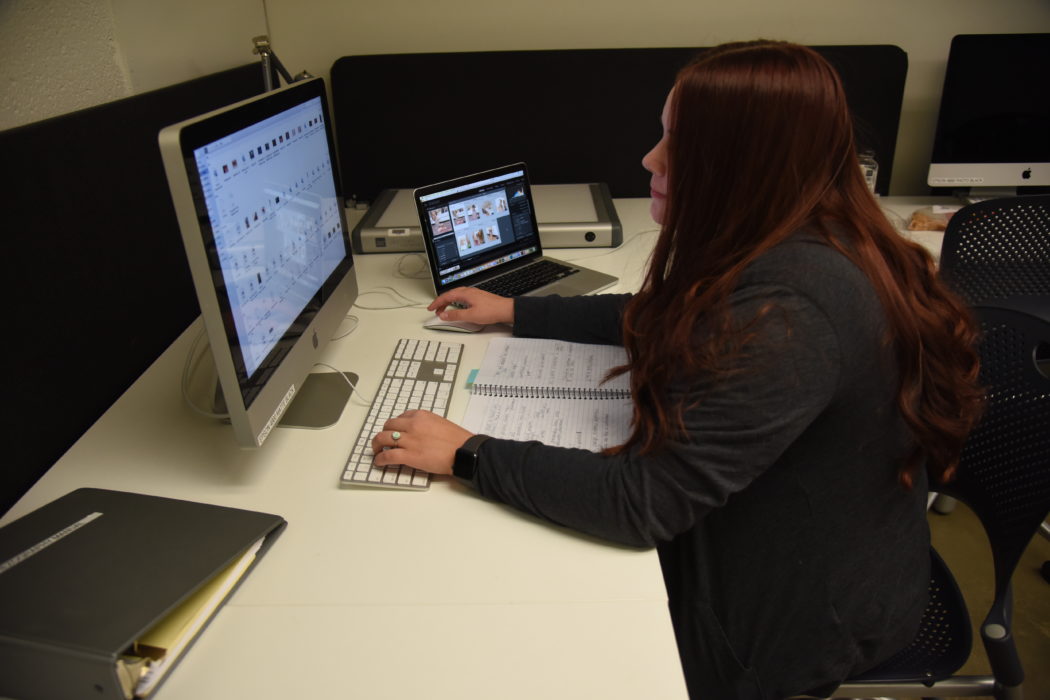Multitasking: Is it effective or unproductive?
Recent studies have concluded that only 5 percent of the population multitasks effectively, even though over 94 percent of students in the United States have admitted to multitasking at least once during their time at school, according to Pew Research Center.
It is a common sight while walking through campus to see students with headphones, cellphones and other devices in use while studying.
“I always have my phone out on the table when I do my homework,” said Jamie Gonzales, a sophomore at Utah State. “When I get a text I really do think it helps my brain since I am able to take a break from my work.”
Some students claim background music can help them focus more intently for longer periods of time. While there are studies that back this theory, music can be detrimental to some students who ultimately use it to multitask.
Stephanie Portutt, an assistant professor at Utah State, said she hardly ever sees a student without their headphones in while doing homework, especially in the library.
“Many students tell me (the music) helps them study better, but I often see students struggle since they all too often get distracted by it instead,” Portutt said.
Multitasking is the process of your brain trying to comprehend and complete multiple tasks at the same time. When you are typing a paper whilst listening to an episode of your latest Netflix binge and periodically checking your phone, you are multitasking.
Multiple historical and recent studies suggest students who multitask while studying consistently under-perform.
Dr. Maryellen Weimer, a professor at Penn State, has performed various experiments that all conclude students do not multitask effectively. Weimer said when students multitask they compromise the quality of their work, and it often takes longer to get the job done.
In a study published in the 2015 issue of Computers and Education, researchers asked students enrolled in a general psychology course to read a passage in a textbook. The passage was about 4,000 words and was directly related to the course.
The students were split into three groups. The first group was allowed to use instant messaging before they started reading, the second group was allowed to IM during the entire time spent reading the passage, and the third group did not IM at all during the experiment.
The second group, who used IM throughout their time reading, took up to 59 percent longer to read the passage than those who did not IM while reading. This study concluded students who are distracted or multitasking while reading read with less comprehension and take longer to finish the passage.
Abdul Haddad, a graduate student at Utah State, said he does his best to keep his brain from multitasking by keeping his devices turned on airplane mode and sitting in a quiet corner of the library to study.
“If my brain cannot be calm and focus on one project, it is chaos. I do not understand why some people think they can do five or more things at one time, in my experience I have never seen that turn out well,” Haddad said.
According to the International Journal for the Scholarship of Teaching and Learning, students who multitask are also more likely to partake in drugs and alcohol and have a lower GPA.
Why can the brain not multitask effectively? Jon Hamilton of NPR said the brain is very good at switching focus from one task to the other, but switching back and forth quickly from task to task is not an effective use of brain power.
Before switching to another task, the brain must take a pause to collect all of the information from the previous task. This pause makes it difficult for the brain to decide what information it needs to absorb for the next task. When the brain cannot effectively focus on the tasks at hand, it is called brain interference.
Some suggestions to stop multitasking include studying without music, turning phones off (or on airplane mode) while working, minimizing visual distractions and not eating while trying to focus on another task.
Guadalupe Mununoz, a junior at Utah State, utilizes her phone’s silent mode when studying.
“When I switch on the silent mode and put my phone in the bottom of my bag, I am not tempted to touch it anymore. Also, it is a nice surprise to go through my notifications when I am done studying to reward myself,” Mununoz said.
There are many ways to lessen brain interference caused by multitasking, but what is effective to some may not be effective for others since all human brains adapt differently to change.
James Mulaney is a senior at Utah State. He said each semester he has to reevaluate how he does homework since his brain gets bored doing the same things over and over. For example, he found switching to another quiet place in the library or using different colored pens helps him stay focused.
“Find what works for you, and just do it. Your grades will thank you later,” Mulaney said.
—Brianne Sorensen
@SorensenBrianne

